Earth
Sign up for our newsletter
We summarize the week's scientific breakthroughs every Thursday.
-
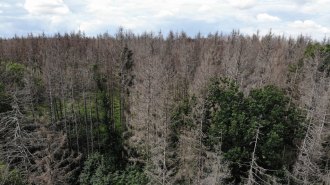 Plants
PlantsTrees ‘remember’ times of water abundance and scarcity
Spruce trees that experienced long-term droughts were more resistant to future ones, while pines acclimatized to wet periods were more vulnerable.
-
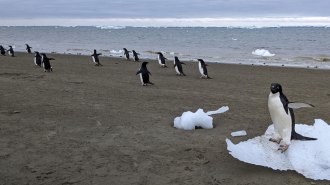 Climate
ClimatePenguin poop gives Antarctic cloud formation a boost
Penguin poop provides ammonia for cloud formation in coastal Antarctica, potentially helping to mitigate the impacts of climate change in the region.
-
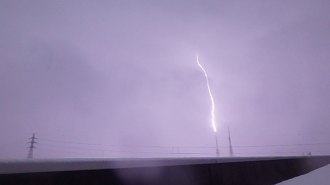 Earth
EarthGamma rays flared as this lightning bolt formed
Thunderstorms are known to generate gamma rays, the highest energy radiation on Earth. But pinning the burst to a specific bolt is new.
By Sid Perkins -
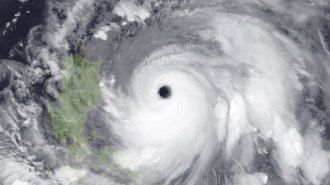 Artificial Intelligence
Artificial IntelligenceA new AI-based weather tool surpasses current forecasts
The AI tool used machine learning to outperform current weather simulations, offering faster, cheaper, more accurate forecasts.
-
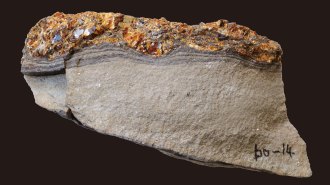 Oceans
OceansSeafloor amber may hold hints of a tsunami 115 million years ago
Oddly shaped deposits of tree resin point to massive waves that struck northern Japan roughly 115 million years ago and swept a forest into the sea.
-
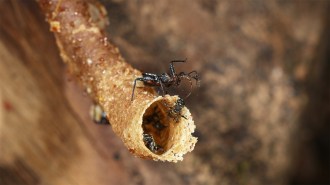 Animals
AnimalsThis tool-wielding assassin turns its prey’s defenses into a trap
This assassin bug's ability to use a tool — bees’ resin — could shed light on how the ability evolved in other animals.
-
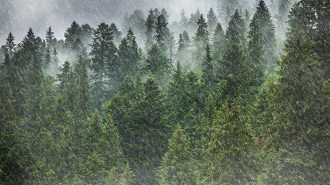 Environment
EnvironmentSkyborne specks of life may influence rainfall patterns
A study of weather on a mountain in Greece reveal that bioparticles in the sky may drive fluctuations in rainfall patterns more broadly.
By Nikk Ogasa -
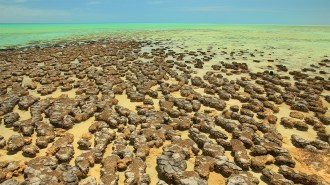 Oceans
OceansBefore altering the air, microbes oxygenated large swaths of the sea
Hundreds of millions of years before oxygen surged in the atmosphere 2.4 billion years ago, swaths of oxygen winked in and out of existence in the ocean.
By Nikk Ogasa -
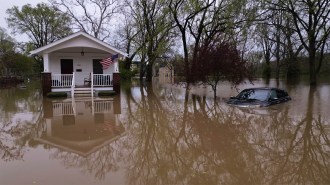 Climate
ClimateLosing a key U.S. climate report would hurt future disaster prep
A scientist who worked on the National Climate Assessment explains how stopping work on it may make us more vulnerable to extreme weather disasters.
-
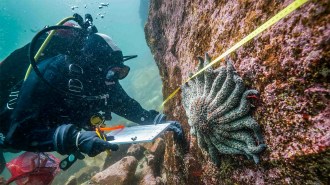 Animals
AnimalsCool water could protect sea stars from a mysterious disease
Sunflower sea stars discovered taking refuge in fjords may offer clues to saving the critically endangered species from sea star wasting disease.
-
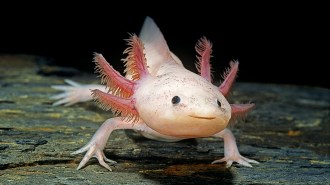 Animals
AnimalsThe axolotl is endangered in the wild. A discovery offers hope
Introducing captive-bred axolotls to restored and artificial wetlands may be a promising option for the popular pet amphibian.
By Anna Gibbs -
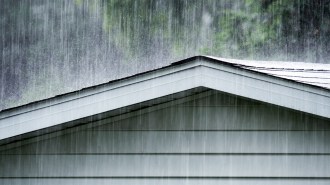 Physics
PhysicsHere’s how we might generate electricity from rain
Water drops produce electricity when dripped through a small tube. That power might be harnessed as renewable energy in rainy places.
By Jude Coleman